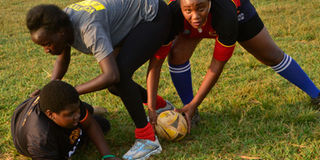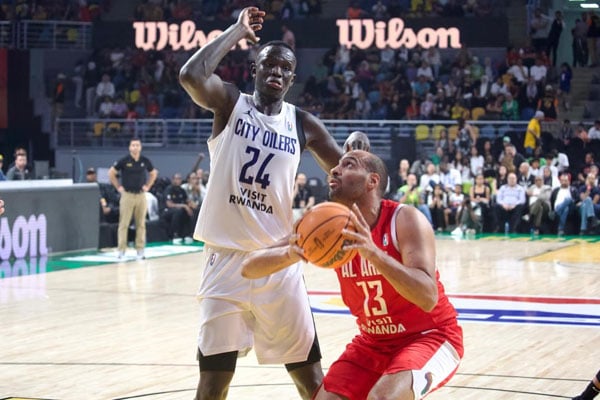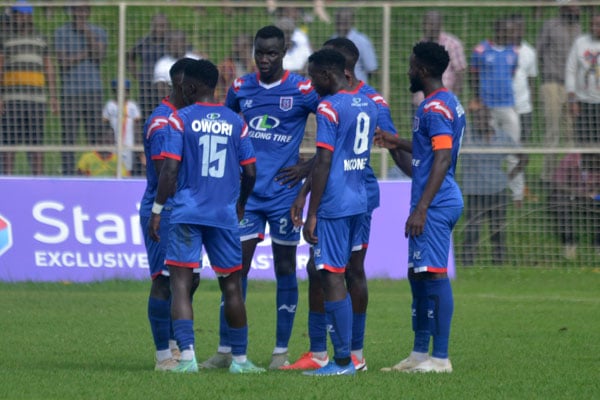Challenges of women’s sports in the view of female athletes

Ladies doing their thing: Former national rugby captain Atyang training female players at Kyadondo. She wants more govt funding for female sports. Photo By Michael Kakumirizi
Kampala. At the first ever Women and Sports Conference in Uganda, at Grand Imperial Hotel February 22, congregants, mostly women, spent a full day in Sasa Hall navigating the state and challenges of women’s sports in Uganda. Inadequate funding, lack of safe space, and limited media attention—with societal stereotypes the thread that connects these—featured most.
Marking the International Women’s Day, we present excerpts from our exclusive interviews with some of the panelists.
Winnie Atyang: Former national rugby captain
People look at women as if they are just wasting time doing certain things like sports.
Because the sport I do is male-dominated, people ask me ‘what are you going to benefit because after some years you are going to bear children and drop out.’ But I tell them ‘I already bore my children and I’m still performing very well.’
Someone asks you ‘are you lesbian, why are you playing such a sport?’ It’s insulting and demoralising to say the least.
The other thing is the lack of funding. I believe there are many talented women who die with their talents because government does not fund us enough.
I remember a schools rugby competition some years ago. A girl from Lira was very good, very fast passionate and aggressive but played in a skirt because she didn’t have shorts. I gave her my shorts…In the final they beat St. Lawrence hands down. But I have never seen her again. She could be somewhere bearing kids but her talent is buried.
So I think if government stops wasting money on useless ventures [which I know you know] and gives more funding to us, the sky is the limit for Ugandan sportswomen.
And can a Ugandan sportswoman be a full woman?
Yes, as long as the man appreciates that this woman loves her sport. What kills relationships is that sportswomen travel a lot. So the man has to be patient.
I think [Dorcus] Inzikuru would have won us more medals if she hadn’t given birth at that time because that was her peak. I wish her husband was a little patient to let her explore her talent fully. I use her as an example because in team sports [like rugby] a teammate can cover up for my weakness but if you are an individual sportswoman it’s you and yourself alone.
Flavia ‘Flirsh’ Oketcho: National basketball captain
Women’s sports does not get as much attention as the men’s. The media coverage is also still low, though this is changing nowadays. I see the media making some loud noise about the She Cranes [the national netball team].
The other problem is that women don’t support each other enough. You don’t find many women watching women’s rugby games, for instance, yet they are many at men’s games.
But the biggest challenge is poor funding. If women’s sports gets adequate finances we would really be far. We need deliberate investment into nurturing girls, right from primary school but many primary schools these days ignore sports [which denies our children a sporting chance at their formative age].
However, there are many elite ladies at club level willing to represent their country. But that itself obviously needs serious funding in terms of preparation, which we lack. We need leaders who are passionate about women doing sports. Otherwise, if you only care about men, it’s not going anywhere. After all, women’s teams have been more successful than men’s.
And can a Ugandan sportswoman be a full woman?
Why not? I’m a wife, a mother, a basketballer, an entrepreneur, a model, a dancer, a brand ambassador, etc. All women were born to be full women. We are all literally super women…it’s just that we cut ourselves short….every woman can be a full woman because we were born that way.
Patricia Apolot: boxer, kickboxer
The biggest challenge is that fellow women who have made it to the top have not helped our cause. Not only politicians, but most successful women across all sectors are not representing us well. They leave us to struggle on our own and at the end of the day we are being taken advantage of by men.
You see before a man helps a woman he expects something in return. Most of the village girls I’m bringing into sport tell me “a man brought me from the village to town promising me a job. But reaching there he wanted to make his wife. When I resisted he asked me ‘I’m I your relative? Go back.’
The other challenge is that Uganda doesn’t recognise sportswomen; no matter how much we struggle no one cares.
The only recognition comes in [Uspa] awards, which don’t come with money. But the award doesn’t put food on the table.
Then demoralising comments. Whenever you try to do something, some people call it a ‘show off’, others say ‘it’s her boyfriend helping her’. And when you fall they make fun of you and no one will pick your hand up. Generally, I fail to know what society really wishes us.
And can a Ugandan sportswoman be a full woman?
Why not? We only need the right support. I strongly believe any Ugandan, any sportswoman can succeed in any field or aspect of life.
Peninnah Kabenge (sports administrator)
I attribute most of the challenges to cultural stereotypes. Women have always been preferred in the kitchen, yet we can contribute to so much in all aspects, sports inclusive.
That’s why the numbers are still low on the fields of play administrators, officials, etc. Due to that marginalising cultural mentality, even girls who try sports face a problem of lack of safe space. Example if a girls’ team and a boys’ team are going to use the same facility at the same time, of course the boys’ team will be favoured at the expense of the girls. Most sports facilities don’t have special changing rooms for ladies; some girls have dropped out complaining about coaches who abuse them, etc.
The press also focuses more on men’s sports. For a woman’s story to take the back page, the woman must have achieved four times the man.
And can a Ugandan sportswoman be a full woman?
Why not? We have all the potential to balance duties. Only that we are constrained by our cultural biases.




